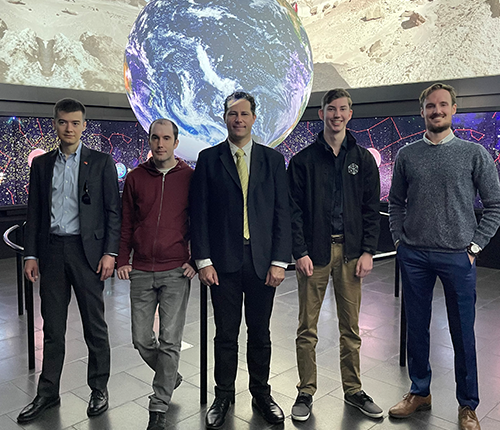Venture Catalyst Space is an accelerator program delivered by the Innovation & Collaboration Centre and funded by the State Government’s Space Innovation Fund. The program aims to support early-stage technology-based space startups with the skills needed to create a globally scalable enterprise. Since 2018, the program has supported 29 startups, which have made significant contributions to South Australia’s space sector.
This year, six companies have been selected to join the program, with innovative technologies such as low-power edge computing modules, space-deployable antennas for satellites, and detecting hazardous chemicals in the air on land and water. The program begins on March 20th, with a four-week induction featuring workshops from industry experts.
South Australia’s space sector is growing rapidly, with a 64% increase each year, and Adelaide, as Australia’s space capital, is leading the charge. The Venture Catalyst Space program is a successful incubator for innovative ideas in the space sector, building critical capability and growing investment and know-how in the state’s space economy.
Australia’s space capital, Adelaide, is attracting new space companies from around the world through its coveted commercial space program, Venture Catalyst Space. The pre-eminent accelerator is delivered by the University of South Australia’s Innovation & Collaboration Centre (ICC) and is funded by the State Government’s Space Innovation Fund. Since its inception in 2018, the program has supported 29 startups that have collectively raised $14 million in additional investment and grants, creating more than 100 space jobs.
This year’s cohort is the strongest that the program has seen to date, with new startups joining from India, Canada, New Zealand, and South Australia. The ICC Director, Jasmine Vreugdenburg, says that the local talent joining the program is a true testament to the successful development of South Australia’s commercial space ecosystem. She added that their new recruits are developing capabilities in educational satellites, sustainable satellites, Big Data processing, and Artificial Intelligence technology.
Deputy Premier and Minister for Defence and Space Industries, Susan Close, says that the Venture Catalyst Space program continues to prove its success as an incubator for innovative ideas in the space sector. South Australia’s space sector is growing at a rapid pace, and the level of talent and innovation emerging from this program is building critical capability and growing investment and know-how in the state’s space economy.
The local companies joining the program will add significant breadth and diversity to Australia’s domestic space sector. The program is on track to grow the industry by more than $8 billion by 2023. Adelaide, as Australia’s space capital, is leading the charge with the development of its commercial space ecosystem.
Migel Tissera, the CTO of Metaspectral, a Canadian company, says that he is looking to expand his company into Australia. He believes that his technology can offer great value to Australia’s space and defence assets and generate revenue both in Canada and the US. He plans to create an Australian office staffed with Australians to capitalize on Australia’s interest in space.
Venture Catalyst Space began in 2018 when the Innovation & Collaboration Centre received a grant of $1.5 million to support the growth of South Australia’s space industry. The aim of the program is to provide early-stage technology-based space startups with the skills required to create a globally scalable enterprise. Since then, 29 startups have completed the program and contributed significantly to South Australia’s space sector.
The newest cohort of the Venture Catalyst Space program is comprised of six companies from around the world, all with unique capabilities and technologies. The cohort includes AICRAFT, Guerin Technologies, Metaspectral, Paladin Space, Robinson Aerospace Systems, and Skyspec. These companies are developing innovative technologies such as low-power edge computing modules for 24/7 cloud computing, space-deployable antennas for satellites, detecting hazardous chemicals in the air on land and water, and educational satellite kits.
The six-month accelerator program begins on March 20th, with a four-week induction featuring workshops from leading industry experts. The new cohort joins some of the strongest South Australian companies that the program has seen to date. The program is funded by the State Government’s Space Innovation Fund and delivered by the University of South Australia’s Innovation & Collaboration Centre.
For more information about the program, visit icc.unisa.edu.au/space.
Don’t miss interesting posts on Famousbio
